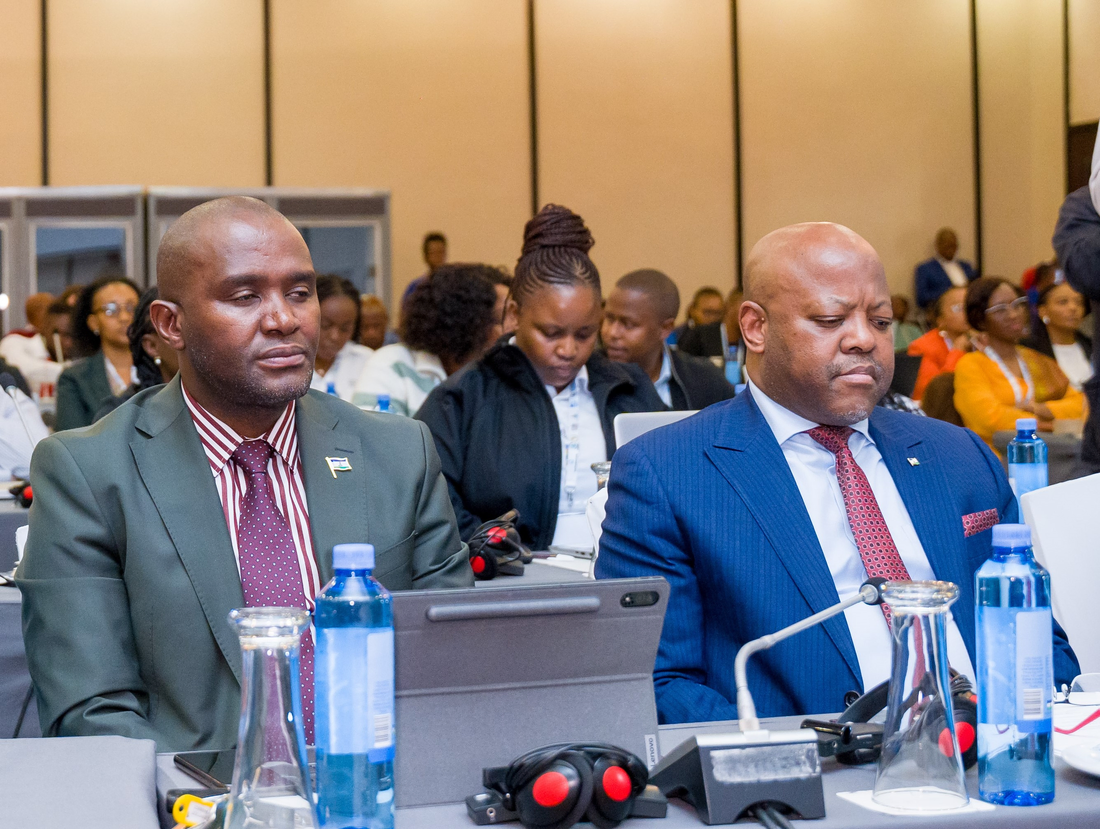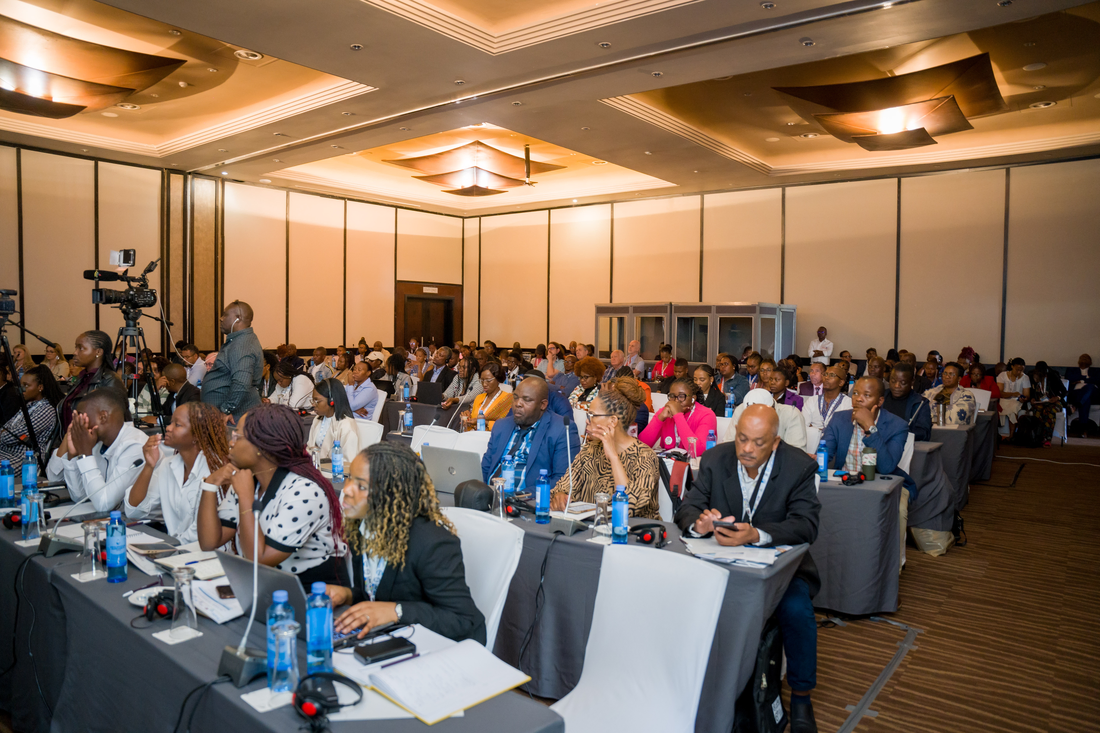Featured image: Approximately 200 delegates from SADC Member States participated in the 6th SADC Groundwater Conference held in Maseru, Lesotho – 13 – 15 November 2024 Photo cred: SADC-GMI
The 6th SADC Groundwater Conference Outcomes Are Set to Enhance Regional Cooperation
The 6th SADC Groundwater Conference concluded successfully at the AVANI Lesotho Hotel from November 13 to 15, 2024. Commencing November 13, the conference aimed to bolster collaborative efforts in managing and protecting water resources, facilitating progress towards a more sustainable future.
The conference addressed essential issues concerning sustainable groundwater management and established a path forward for the responsible use of this valuable resource. Keynote speakers encouraged the audience to actively participate in the program to ensure the conference’s success. The audience responded positively, fully engaging in the discussions and contributing to the conference’s overall achievements.
The conference’s primary objective was to formulate resolutions and strategies to address groundwater challenges within the region. Additionally, it aimed to disseminate successful best practices, with the expectation that other countries could adopt and adapt these approaches to their unique contexts.
Following the third day of the conference, the participants identified several key issues that must be addressed to foster the creation of a water-secure region.
Policymakers and the public need to pay more attention to critical groundwater issues, including storage depletion, quality deterioration, and ineffective governance. This oversight poses a significant threat to the sustainability of this essential resource.
Given 15 transboundary river systems and 30 transboundary aquifers, cooperative action is imperative for the effective conjunctive use of ground and surface water. Such collaboration is vital for maximizing regional benefits and addressing shared risks.
Action must be taken to enhance surface water and groundwater resources management. This necessitates transitioning from fragmented approaches towards a more integrated and cohesive strategy for effective water resource management.
Significant barriers continue to impede the adoption of groundwater technologies. These challenges include a lack of awareness of their potential benefits, insufficient human capacity and governance structures, and inadequate legal frameworks for effective implementation and operation.
Currently, guidelines for managing transboundary waters are lacking. Establishing them is essential for effectively and equitably using shared water resources.
Enhancing data availability and expanding seasonal and spatial coverage can enhance hydrogeological research on groundwater systems.
Emerging contaminants, including pharmaceuticals and hormones, are progressively impacting surface and groundwater quality, particularly in regions near wastewater treatment facilities.
Regulatory guidelines are essential to prevent new industrial construction near-critical water resources, particularly in vulnerable municipalities.
Managed aquifer recharge (MAR) is a vital solution to the region’s increasing demand for groundwater resources, a challenge intensified by climate change impacts.
Promote the establishment of collaborative legal and institutional frameworks to facilitate the integrated management of resources in transboundary contexts.
“We cannot manage what we do not measure.” Enhancing groundwater monitoring systems is essential for informed decision-making, as water crosses geopolitical boundaries. Groundwater institutions are key in turning these decisions into practical strategies.
Focusing on Regional Water Resilience
The conference also underscored the region’s need to concentrate on the following key areas to attain water resilience:
- Technical cooperation among water institutions.
- Effective information sharing and collaboration.
- Sustainable infrastructure development to reduce climate disaster risks and mitigate environmental vulnerabilities.
- Support for institutional development processes.
- Capacity building initiatives.

From Left is the Deputy Principal Secretary Mr. Lisema Lekhoana and the Minister of Natural Resources, Hon Mohlomi Moleka
In his concluding remarks, Eng. James Sauramba, Executive Director of the Southern African Development Community Groundwater Management Institute (SADC-GMI), highlighted the need for greater cooperation among member states to enhance governance within SADC. He stressed that collaboration and resource-sharing are vital for addressing the region’s water challenges. The main takeaway from the conference is that applied science can help us achieve regional integration, peace, and stability through effective policies and frameworks.
Mr. Lisema Lekhoana, the Deputy Principal Secretary of the Ministry of Natural Resources, praised the collaborative efforts of the Lesotho Government and SADC-GMI in successfully organizing the recent conference. He highlighted the event’s significance, noting that it serves as a pivotal moment for the Southern African Development Community (SADC) water sector, aiming to address pressing water management challenges in the region.
During his concluding remarks, Mr. Lekhoana expressed hope that all participants left the conference with valuable insights and practical takeaways. He emphasized the importance of applying what they learned to improve water resource management practices in their home countries. “The conference aims to foster stronger cooperation among SADC member states in tackling water sustainability and access issues by sharing knowledge and strategies,” Mr Lekhoana concluded.





